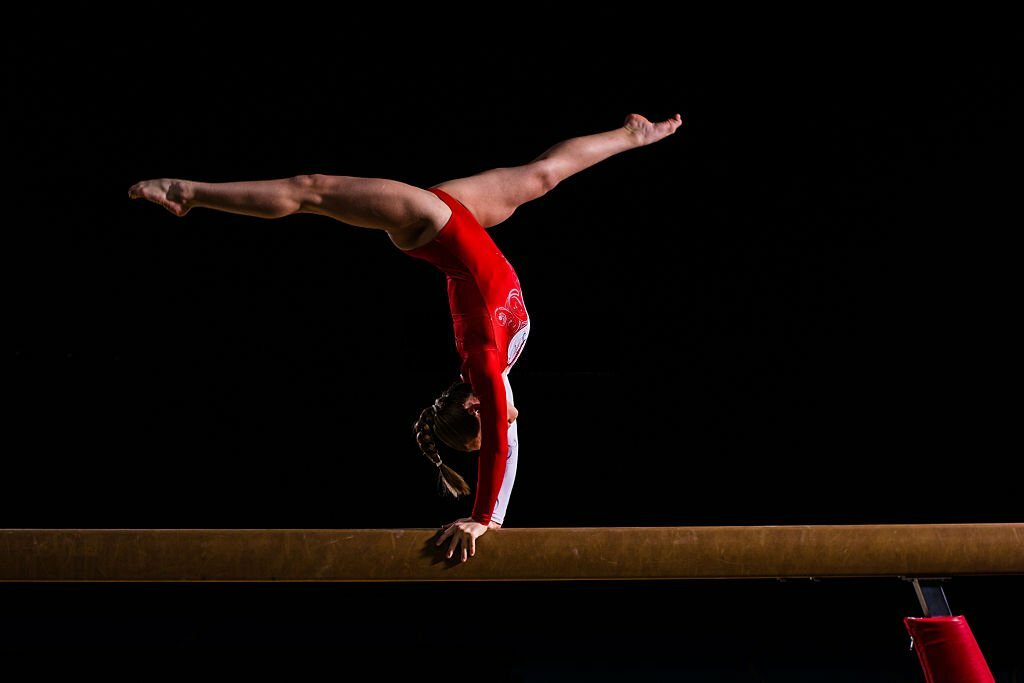Why Gymnastics is the Hardest Sport? 7 Compelling Reasons
Table of Contents
In this article, we will talk about the 7 Reasons why Gymnastics is the Hardest Sport in the world for athletes. So let’s dive in.
Gymnastics, often hailed as the epitome of athleticism and precision, has long been debated as the hardest sport. In this article, we delve into the intricacies of gymnastics, presenting a compelling case backed by seven undeniable reasons that substantiate its claim as the most challenging athletic discipline.
Why Gymnastics is the Hardest Sport?
The debate over whether gymnastics can truly be crowned the “most challenging sport” continues to evoke passionate discussions. Advocates emphasize its unique combination of strength, flexibility, coordination, and mental resilience. Conversely, critics contend that other sports showcase similar levels of difficulty, each within its own set of physical and psychological parameters. Determining the “most challenging” sport is ultimately a matter of personal judgment, influenced by individual perspectives and criteria. Nevertheless, it is indisputable that gymnastics occupies a prominent position among the most demanding physical pursuits, requiring athletes to demonstrate exceptional athleticism and unwavering dedication.
1. Physical Demands Beyond the Norm
Gymnastics demands an extraordinary level of physical prowess. Athletes must possess unparalleled strength, flexibility, and endurance. The sheer intensity of gymnastic routines puts an immense strain on the body, requiring participants to push their physical boundaries to achieve perfection in every move.
2. Precision and Perfection
Unlike many sports, gymnastics leaves no room for error. Every movement, every twist, and every landing must be executed with precision. The quest for perfection is unrelenting, requiring athletes to dedicate countless hours to honing their skills to achieve the flawless routines that define competitive gymnastics.
3. Mental Fortitude Under Pressure
Competing in gymnastics involves not just physical prowess but also unparalleled mental fortitude. Athletes must perform intricate routines flawlessly under the scrutinizing eyes of judges, the pressure of the crowd, and the weight of expectations. This mental resilience is a defining factor that sets gymnastics apart from other sports.
4. Early Start, Lifelong Commitment
Gymnasts often commence their training at an early age, sometimes as young as five or six. The sport demands a lifelong commitment, with athletes dedicating their formative years to rigorous training regimes. This early start emphasizes the difficulty of gymnastics and underscores the unwavering commitment required to reach the pinnacle of success. Great post to read about Mini Educator E Collar.
5. Versatility in Disciplines
Gymnasts are not just specialists; they are versatile athletes who must excel in many disciplines. From the grace of artistic gymnastics to the power of rhythmic gymnastics, athletes must be masters of various forms, showcasing a breadth of skills that few sports demand.
6. Injury Risks and Resilience
The physically demanding nature of gymnastics exposes athletes to a higher risk of injuries. Despite this, gymnasts showcase unparalleled resilience, often overcoming setbacks that would sideline athletes in less demanding sports. The ability to rebound from injuries adds another layer to the demanding nature of gymnastics.

7. Judging Subjectivity
Gymnastics judges evaluate performances based on a subjective scoring system, introducing an additional layer of complexity. Athletes must not only perform flawlessly but also interpret and navigate the subjective nature of scoring, adding an intellectual challenge that sets gymnastics apart as a sport that goes beyond sheer physicality.
Final Words
In conclusion, gymnastics stands as a testament to human physical and mental capabilities, earning its reputation as one of the hardest sports. The amalgamation of unparalleled physical demands, the pursuit of perfection, mental fortitude, early commitment, versatility, injury resilience, and the subjective nature of judging all contribute to the unique challenges that gymnasts face.
People also ask
1. Why is gymnastics one of the hardest sports?
It necessitates extraordinary physical and mental fortitude, involving intricate routines that demand substantial strength, coordination, and precision in high-pressure situations. Gymnasts challenge their physical boundaries, executing intricate movements with impeccable form and control.
2. What is the world’s hardest sport?
Determining the most challenging sport objectively poses a difficulty since the level of challenge varies based on individual strengths and weaknesses. Nonetheless, gymnastics is often considered one of the toughest sports due to its rigorous physical demands, complex skills, and high-pressure nature.
3. Which sport is harder, football or gymnastics?
Both sports demand athleticism, albeit in distinct manners. Football prioritizes speed, endurance, and teamwork, whereas gymnastics centers around strength, flexibility, and the execution of individual skills. The assessment of which is more challenging is subjective and hinges on individual strengths and preferences.
4. Is gymnastics a high-risk sport?
Yes, due to the demanding nature of the sport and the complex maneuvers involved, there is an inherent risk of injury. However, with proper training, conditioning, and safety measures, the risk can be significantly minimized.
5. Is gymnastics a good sport for girls?
Certainly! Certainly! Gymnastics cultivates strength, flexibility, coordination, and discipline in girls, nurturing their confidence and self-esteem. Additionally, it provides avenues for physical activity, social engagement, and personal development, rendering it a comprehensive and fulfilling sport suitable for girls across various age groups.



